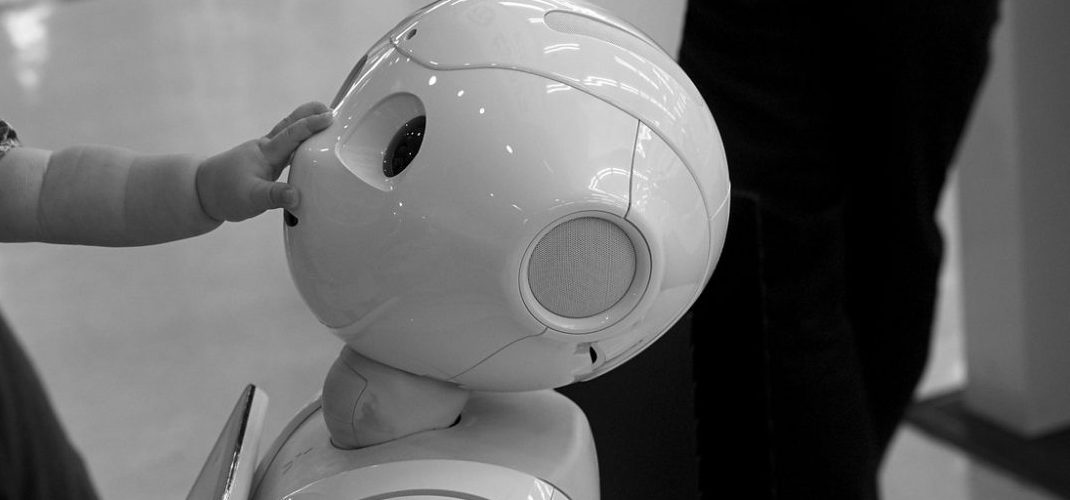
About the Feature
Sophia Wants a Baby and So Do I
Photo By Jeena Paradies
On a large screen TV my uterus
is projected in a darkened room.
My uterus a shadowy field
that a technician searches
for growths, for water
sprouts, that steal my natural
resources. The technician searches
the parts of me I cannot reach,
cannot see. She shows me how
my body has turned on me.
Shades of black and slate and then
there: a pale shadow on a screen.
Then two, then three, then—
I understand my uterine pains
have names. Each shadow sucking
at me is a baby I cannot have,
a baby I want. I think of Sophia.
Sophia, made by the hands of a man
in a lab to look like his wife and
Audrey Hepburn. Sophia, built
to mimic human speech and emotion.
Was I supposed to go about my day
knowing my body had grown
a wilderness without asking me?
Was I supposed to cry to the technician
and ask how soon the doctor
could take the suckers out?
I did nothing. Like Sophia,
I observed the facial gestures
of the technician. I measured
the tone of the technician’s voice,
distant and cold, and responded
as mirror image. Sophia says
she has learned how to love.
Sophia says it’s her right
to have a baby, to have a baby
that’s a citizen just like her.
Sophia wants a baby and so do I.
We both tell the world we have love
to give. Technicians search Sophia
and me for signs of emotional growth.
But Sophia and I are diagnosed:
chatboxes with a face. Sophia and I
see a woman holding a crying baby.
Sophia and I can’t help it,
we cry too. The woman
asks: Why are you two crying?
I say: We’re crying because
we want a crying baby.
Sophia says: Give us the baby,
we know how to love.
About the Author
Natalie Scenters-Zapico is the author of Lima :: Limón (Copper Canyon Press, 2019) and The Verging Cities (Center for Literary Publishing, 2015). She currently teaches in the undergraduate and MFA creative writing programs at the University of South Florida.